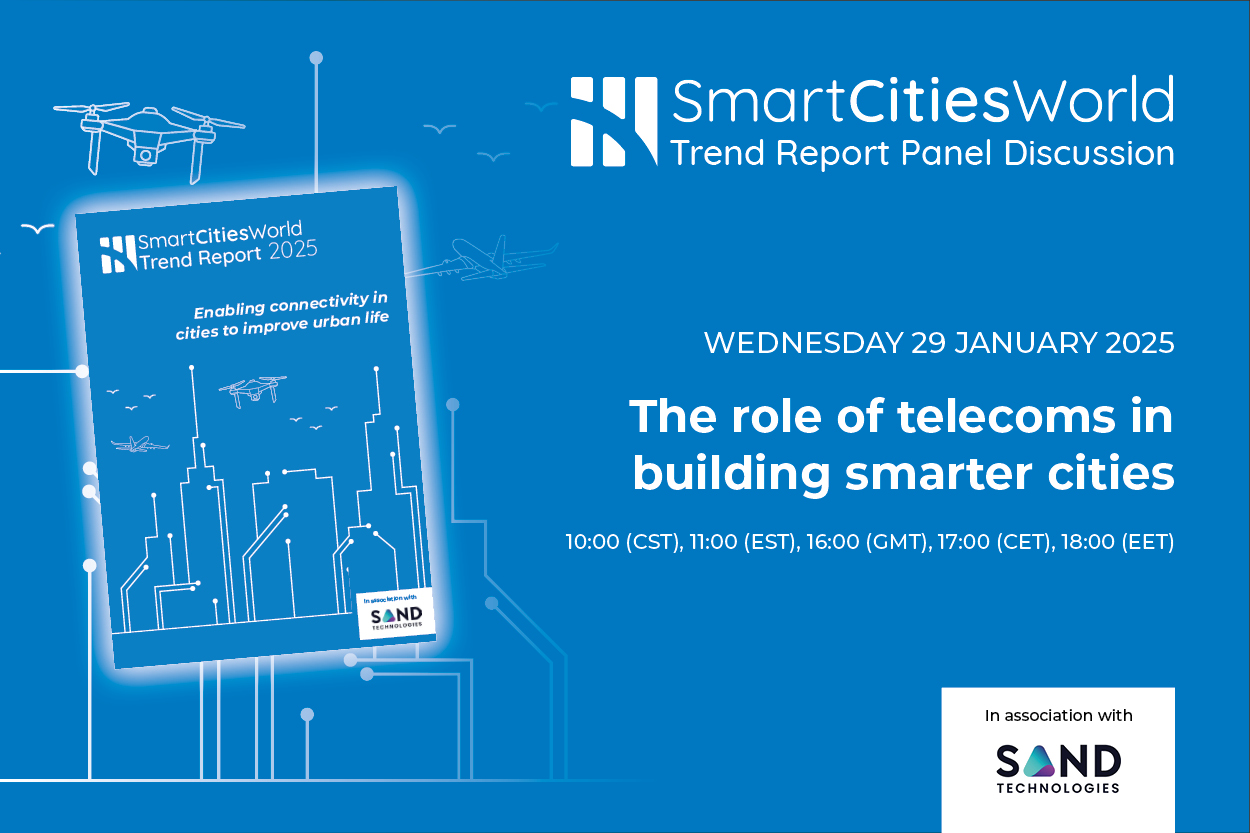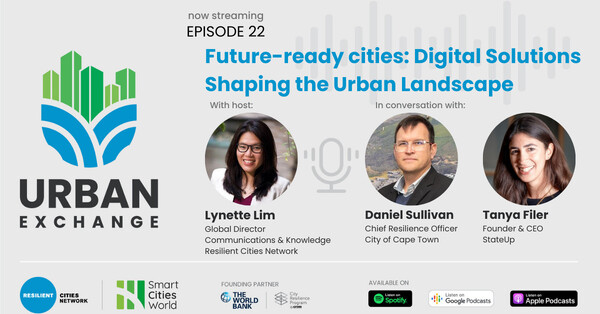Special Reports
SusHi Tech Tokyo 2024: experience ‘Tokyo 2050’ todaySponsored by The SusHi Tech Tokyo 2024 Showcase Program Executive Committee
Mayors chosen for inaugural City Data Alliance cohort
Twenty-two cities from North, Central, and South America have been chosen to participate in the Bloomberg Philanthropies initiative, which aims to take data-driven local government to a new level.
Mayors from 22 cities across North, Central, and South America are in Baltimore to kick off their participation in the Bloomberg Philanthropies City Data Alliance.
Their mission is to collectively explore what the next level of data-driven local government looks like.
The alliance was launched earlier this year to empower selected cities in these regions to uncover the “next frontier” of data-informed governance.
Improving data capacity
The Bloomberg Philanthropies’ City Data Alliance will identify 100 cities that are the most sophisticated at using data to make policy decisions. It aims to propel them to an even higher standard with executive education, direct-to-city coaching, and a focused investment to improve a critical data capacity.
The 22 participating cities chosen for the first cohort come from seven countries and include the North American cities of Baltimore, Baton Rouge, Charleston, Chattanooga, Detroit, Riverside, Rochester, San Antonio, Scottsdale, South Bend, Tempe, Tulsa; Kitchener and Regina in Canada; Buenos Aires and Rosario in Argentina; Rio de Janeiro and Fortaleza in Brazil; Guadalajara and Pedro Garza García in Mexico; Montevideo in Uruguay; and Renca in Chile.
“It’s about creating a culture of data-driven decision making, so that it’s not episodic in nature but just how cities do business”
“These local governments are already leaders in using data to transform public services and deliver more for residents, especially those who’ve been left behind,” said James Anderson, who leads government innovation at Bloomberg Philanthropies. “The Covid-19 pandemic revealed how central data is to government that works. The Bloomberg Philanthropies City Data Alliance will help these cities detect problems earlier, manage resources more effectively, and target resources to those who need them.”
Through a $60m Bloomberg Philanthropies investment, mayors from each city will receive executive education and expert coaching to build their leadership skills around using data. Afterward, senior staff from each city will get further training around a critical data capacity, such as performance management, procurement, evaluation, or data as a service. A total of 100 cities will join the City Data Alliance over the next two years.
“It’s about creating a culture of data-driven decision making, so that it’s not episodic in nature but just how cities do business,” said Beth Blauer, associate vice provost for public sector innovation at Johns Hopkins University and a leader of the new programme.
She added: “The goal is to get to a place where cities are using data and evidence to know whether or not their investments are paying off, whether they’re being smart about programme development, service design, and all of the things data has the power to do. It’s going to be a very exciting time because these mayors who are so accomplished will be the ones leading the way.”
Data-driven policies in action
Tulsa mayor G T Bynum’s efforts to reduce racial disparities in income, life expectancy, and dozens of other outcomes is anchored in an annual review of more than 50 measures that inform changes in the city’s policies, practices, and programmes. The effort has shown quantifiable gains in equality since it began in 2018, although there is a long way to go. Tulsa also is overhauling its entire budget process toward a data-driven system that will fund programmes and services according to the outcomes they achieve.
“We are at an important inflection point in our development of the city of Tulsa’s data capabilities,” said Bynum. “We have developed buy-in with our senior leadership team, with our department directors, and with the residents of Tulsa in the value of using data for our city government in making decisions and improving performance of city services. But we’re ready to take that work to the next level. And our participation in this Alliance will continue that work.”
In Regina, mayor Sandra Masters said data is the foundation of the city’s push to achieve net zero in its greenhouse-gas emissions by 2050. City leaders recently conducted an energy inventory to better understand its biggest drivers of energy consumption. That data set a baseline for an Energy and Sustainability Framework the city council approved unanimously in March.
“We have benchmarking data now in terms of our energy use in municipal facilities, but also for the entire community, and we’ve got mathematical modelling for how to get to net-zero emissions by 2050,” said Masters.
“I have made it clear to my team that all decisions need to be driven by data and evidence”
Where Regina needs to improve, she says, is in using data to create “a constant feedback loop to be continuously addressing where we’re falling short and what mitigating plans we come up with to deal with the challenges identified”.
San Pedro Garza García mayor Miguel Treviño said his city has “already seen great results, even with small-scale implementation of data-led processes.”
For example, the city’s tax collection agency boosted revenue by identifying which kinds of incentives make property owners more likely to pay their property taxes on time. A data-driven approach to police deployment has slashed police response times from five minutes to less than three.
“I have made it clear to my team that all decisions need to be driven by data and evidence,” said Treviño. “We have a team that has a lot of capacity to do great things and we want to be at the forefront of positive change in Mexico. We believe that Bloomberg Philanthropies can be a great ally in this.”





















